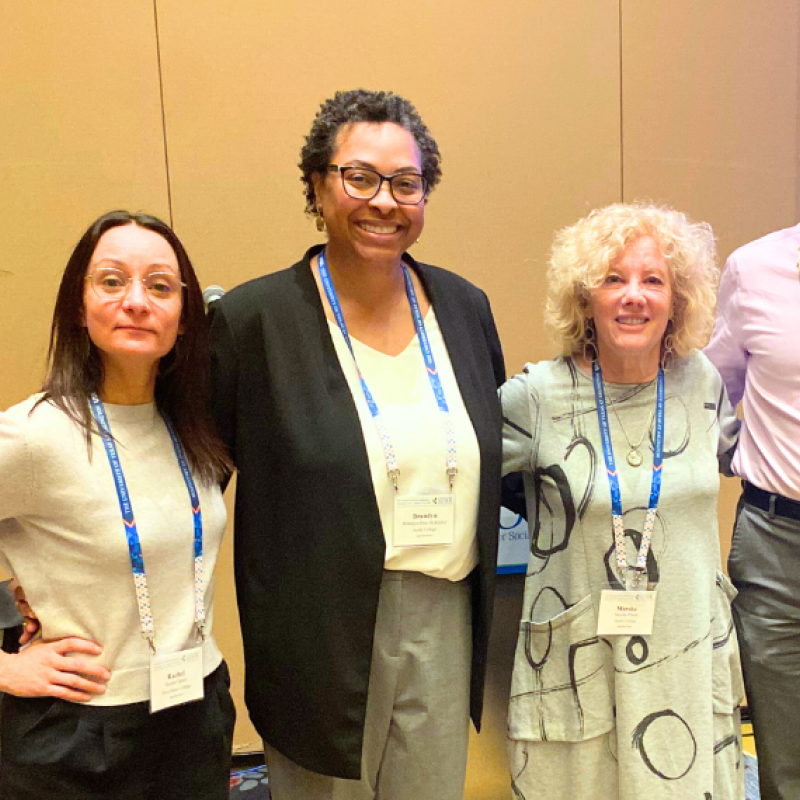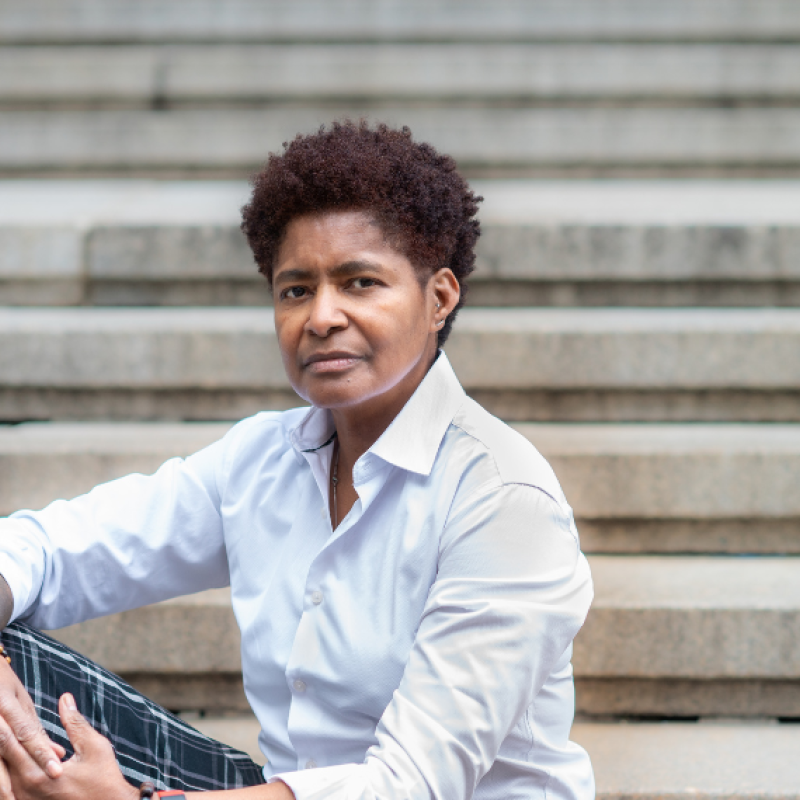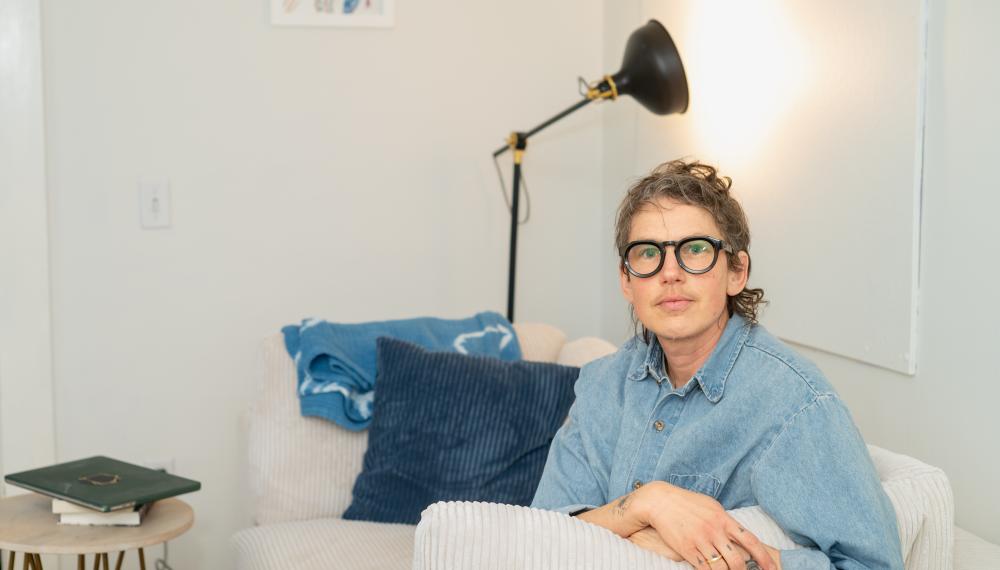
For many years, Asher Pandjiris, M.S.W. ’13, LICSW, LCSW worked as a clinician in demanding institutional settings: in a community mental health clinic, an inpatient psychiatric hospital and as program director of an eating disorders treatment facility. Today, having weathered periods of burnout that can come with this exhausting work, they have a small private practice and have developed a work-life balance that supports their own mental and physical health as well as that of their clients.
In their small private practice, Asher works primarily with queer, trans, or non-binary adults who are returning to therapy after a previous experience. Many of their clients have experienced complex PTSD and have a wide variety of manifestations of that. Many have issues with disordered eating, which given Asher’s background, has become a specialty of theirs.
Asher is also devoted to helping their fellow clinicians develop their practices and especially to develop sustainable work lives that don’t undermine their physical and mental health. To that end, they and fellow SSW alum Onyx Fujii, M.S.W. ’12, launched the Kintsugi Therapist Collective. Kintsugi is a virtual community of trans and non-binary, BIPOC, chronically ill and disabled therapists and aligned care workers—nurse practitioners, psychiatric practitioners, body workers, dietitians, physicians, psychiatrists—who have experienced burnout or are struggling with the unrealistic professional demands in their fields. The collective offers embodied care, support, wisdom and resources through year-long mentorships, weekend intensive sessions and ongoing consultation. As Asher described Kintsugi: “We are interested in trying to go from the inside out to address what we call toxic professionalism, and how that actually keeps us from providing a service to our clients and ourselves.”
An average day in Asher’s life reflects the work they have done to ensure they can thrive as a clinician. Especially because they live with several chronic illnesses, Asher orients their days around some predictability, with allowances for accommodating symptoms that may come up. “I diversify my tasks, and that really helps me. Being able to see a client and have a consultation—to move in and out of teaching, research and different roles—is a big part of what is working for me.”
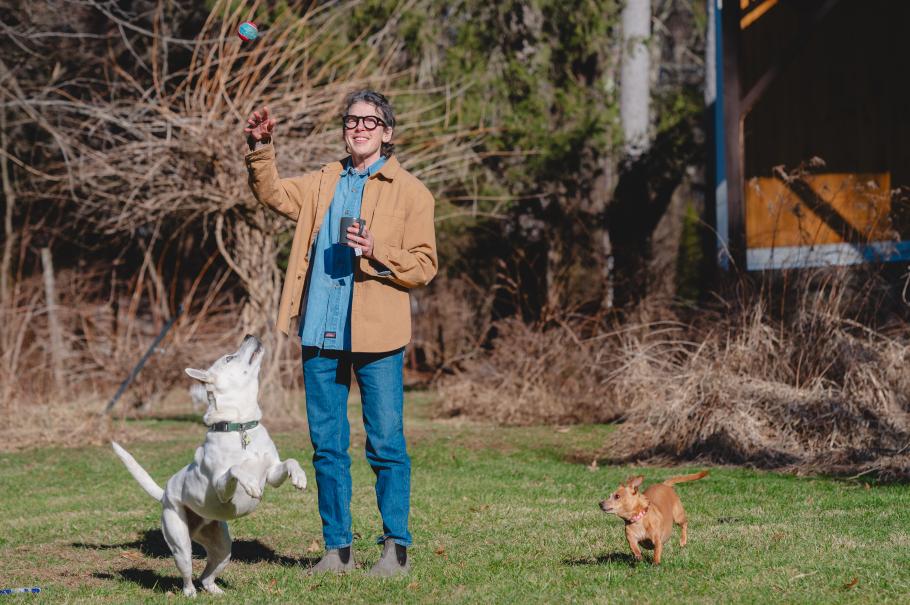
The day starts at 6 a.m. with Asher letting their dogs out and getting their teenaged daughter up and ready for school. Then they walk the dogs, which is one of the highlights of their day—spending time with their pets, getting the opportunity to move and listening to podcasts (current favorites are true crime and Democracy Now!).
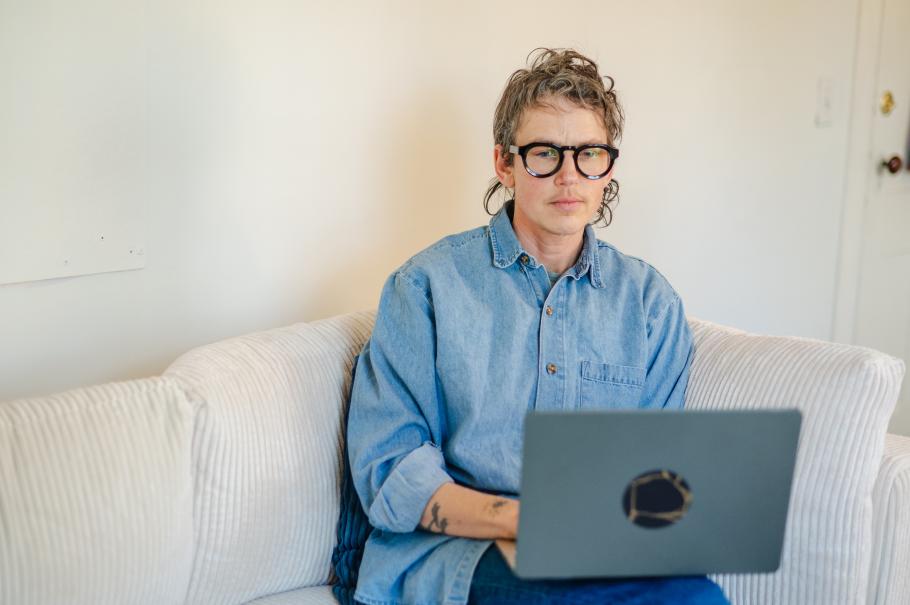
Knowing they are at their best and most alert in the morning and early afternoon, Asher sees clients between 9 a.m. and 2 p.m. They’ll have three to four virtual sessions a day, reserving time between sessions for stretching and meditation, which they often do virtually with other people. After the sessions, they will squeeze in another walk and then get their daughter from school. In the afternoons, they may do work for Kintsugi—perhaps developing a syllabus or reading a case study that someone in the collective plans to present.
From there, it’s back to the usual activities of daily life: preparing dinner with their partner, reading, watching television or doing something similar to turn off their work brain before getting to bed by 9:30 p.m. At the end of their day, Asher will usually send a voice note to Onyx. They communicate daily, in part regarding Kintsugi, but also to maintain this important friendship. Onyx also lives with chronic illnesses, and they provide essential support for each other, talking about frustrations with doctor appointments, difficult symptoms or a challenging week.
“It’s not exciting, but I like it like that,” Asher said about their work life. “My description of a typical day sounds a little idealistic,” they acknowledged, “but a big part of how I have been able to create a schedule that is more gentle for me has been through a lot of periods of burnout. Being able to rely on spaces like the Kintsugi Therapist Collective, that prioritize sustainability and not leaving the field, has been pretty important.”

